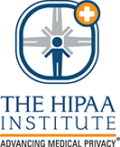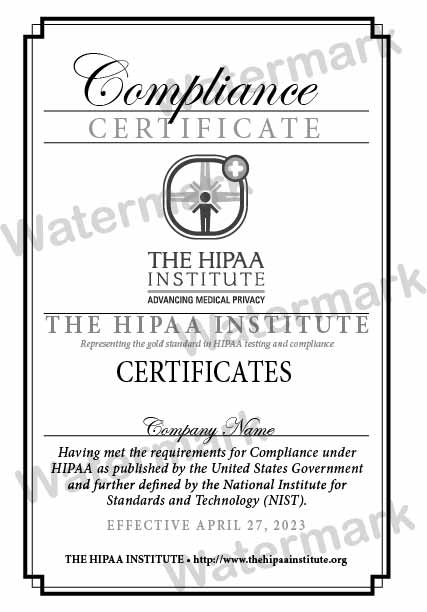HIPAA Certification
The HIPAA Certificate, conferred by The HIPAA Institute, epitomizes the paramount benchmark in HIPAA testing and adherence. To qualify for the esteemed HIPAA Certificate, a medical organization is obliged to substantiate their fulfillment of the HIPAA prerequisites stipulated by the US Government and further refined by the National Institute for Standards and Technology (NIST).
The HIPAA Institute
The HIPAA Institute is an esteemed organization comprising influential technology and security stakeholders from the healthcare industry.
Our Mission:
- To establish a fundamental level of expertise for IT professionals seeking to operate within the healthcare community.
- To develop and administer a comprehensive HIPAA compliance certification program for Covered Entities and Business Associates.
- To actively champion policies and standards that enhance the privacy and security of health information, fostering its utmost protection.
HIPAA Compliance Validation
The process of attaining HIPAA compliance entails three essential components: meticulous documentation, thorough risk assessment, and a comprehensive employee training program. Demonstrating compliance requires substantiating the presence and effectiveness of each component. To obtain a HIPAA Certificate, every medical facility must provide compelling evidence of meeting all the requirements associated with each component.
Employee Training
Ensuring HIPAA Compliance encompasses comprehensive privacy and security training for all employees, in accordance with the provisions outlined in Section 164.308(a)(5). The HIPAA Institute will meticulously verify the completion of such training and assess the presence of a well-documented policy addressing both new hires and recurrent training requirements.
Documentation
Thorough documentation encompassing your physical network, computers, and mobile devices, user privileges, installed software, backup and disaster recovery strategies, and other pertinent details should be established and duly validated by the inspector from The HIPAA Institute.
Risk Assessment
A comprehensive Risk Assessment must be diligently conducted and meticulously documented. This Assessment must encompass an evaluation of environmental risk factors, as well as risk factors associated with hardware and software components. The Risk Assessment report will undergo a thorough review by an inspector from The HIPAA Institute prior to the issuance of a HIPAA Certificate.
Regular Security Assessments
Similar to the diligent care provided to patients, maintaining robust security measures necessitates regular checkups. Ensuring compliance entails periodic evaluations as mandated by Section 164.308(a)(5)(7). The HIPAA Institute mandates that these updates be scheduled and thoroughly documented to ensure the implementation process is properly executed.

